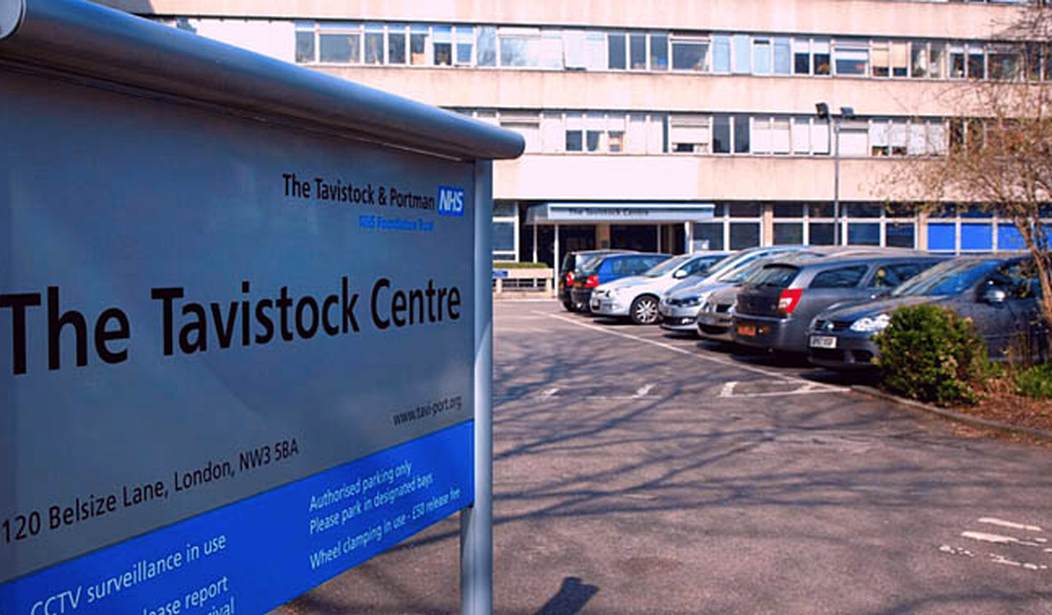The Tavistock clinic was the UK gender identity clinic for children until it was shut down last year. The shutdown was prompted by a number of things. First there was a lawsuit by a former patient which put the clinic in an unflattering light. And in June 2020 BBC Newsnight ran a story citing internal emails in which staff suggested some patients were being rushed into transitions.
Clinicians reported worries that some patients were referred onto a gender transitioning pathway too quickly.
BBC Newsnight has seen transcripts of staff interviews from a review into the Gender Identity Development Service…
In the transcripts, staff are damning in their assessment of some parts of the service.
“Let’s pray that I am wrong because if I am not wrong, very many vulnerable children have been very poorly treated and will be left with, potentially, a lifetime of damage here,” one says.
That led to a formal review of the clinic which became known as the Cass report which found several problems from a long waiting list to staff who felt obligated to have an “unquestioning affirmative approach.”
Today the Telegraph has a story based on an upcoming book written by Hannah Barnes, one of the authors of the BBC Newsnight story quoted above. The book, titled Time To Think: The Inside Story of the Collapse of the Tavistock’s Gender Service for Children, will be published next week. It reports that staff at the Tavistock clinic overlooked a host of other serious problems the children referred to them were dealing with in their rush to provide affirming care.
The Tavistock clinic ignored evidence that 97.5 per cent of children seeking sex changes had autism, depression or other problems that might have explained their unhappiness, a new book claims.
Staff at the NHS facility were so determined to push a pro-transgender policy that children who might not have been trans were treated as “collateral damage” by clinicians who labelled doubters “transphobic”, a whistleblower says.
Seven in ten children had more than five “associated features” such as abuse, anxiety, eating disorders or bullying, and a social worker estimated that as few as 1 in 50 children treated at the clinic would have stayed transgender for life if they had not been given controversial drug therapy…
Children as young as 10 were referred to specialists with a view to them being prescribed puberty-blocking drugs, and others were referred after as little as 20 minutes’ consultation, the book says.
Dr. Anna Hutchinson, a clinical psychologist who worked at Tavistock, said she “feared she may be contributing to a medical scandal, where an NHS service was not stopping to think what else might be going on for so many of these vulnerable children.”
Dr Hutchinson told Ms Barnes that she realised the puberty blockers might have been confirming a trans identity rather than simply pausing puberty, and: “I was horrified because I just suddenly thought, ‘Oh God, Oh God’.” She became concerned that Gids was getting it wrong by referring children for assessment for puberty blockers who were traumatised, abused, autistic or simply gay, but said that the finding on puberty blockers was brushed aside by staff.
There was pressure on the clinic to make these decisions and it was coming from outside groups including Mermaids.
Ms Barnes chronicles how the transgender charity Mermaids put huge pressure on the clinic to refer children for drugs at a younger age and to recommend surgery, with one clinician saying they would be “absolutely attacked [by Mermaids] for just trying to stop and think with [children]”.
I’ve written about Mermaids several times. The pro-trans charity got in trouble last year after it was revealed they had been sending chest binders to girls as young as 13. They did this even when they knew the child’s parents opposed it. That report led to the opening of an investigation by the UK Charity Commission.
That was followed by the news that one of Mermaids’ trustees, Dr Jacob Breslow, had given a speech to a pro-pedophilia group in 2011 in which he used the phrase “minor attracted persons” which is preferred by pedophiles. Dr. Breslow quit his position with the group and was put on leave by his university.
Then in December Mermaids’ chief executive, Susie Green, stepped down just as the Charity Commission announced they were expanding their investigation to include the charity’s “governance and management.” All of that to say, Mermaids’ future isn’t looking so hot.
Financial Times also has a story about Barnes’ book today which sort of sums up what a disaster Tavistock has become in recent years.
Time to Think exposes how shockingly little evidence there was for what worked — the studies cited were based on tiny samples — and how little interest there was in collecting more data. It is not even known how many people detransition. This lack of interest seems to betray a wilful failure to safeguard the wellbeing of the children involved.
The leadership pressed on, even when its own survey showed that not all children thrived on blockers: many saw their mental health deteriorate. Barnes explains that a large number of those who sought help were suffering from multiple problems, including autism. As time went on, the number of prepubescent boys was overtaken by the number of girls, many of them self-harming or suffering from eating disorders. Yet the diagnosis didn’t change. By attending the unit, girls were on a pathway to drastic, irreversible operations such as “top surgery” — the casual phrase for the cutting off of female breasts…
It is astonishing how long it took for anyone to act. In 2005, concerns led the medical director David Taylor, medical director of the Tavistock and Portman NHS Foundation Trust, to write a report — but this was not shown to staff or the public until 2020. In 2018, 10 worried clinicians took their worries to David Bell, a respected senior psychoanalyst, whose subsequent 54-page report branded the clinic “not fit for purpose”. But still nothing happened. The clinic and its overseers at the Tavistock and Portman NHS Foundation Trust closed ranks. It was not until 2022 that NHS England took the decision to close the clinic, after yet another report, this time by Hilary Cass. Paul Jenkins and Paul Burstow, the CEO and chair of the Trust, have both stepped down.
Hopefully the US can learn some lessons from what went wrong at Tavistock. The main lesson seems to be not to create a pathway which puts troubled teens, many of whom may have been heavily influenced by social media, on a path to permanent medical changes to their bodies before they are adults.








Join the conversation as a VIP Member